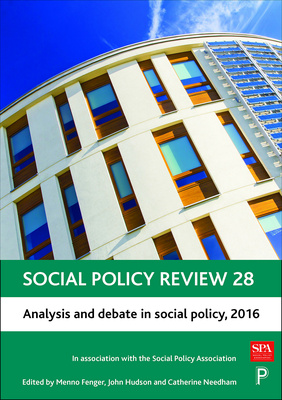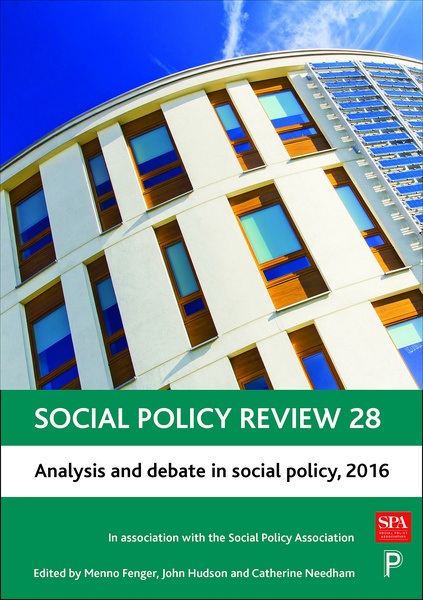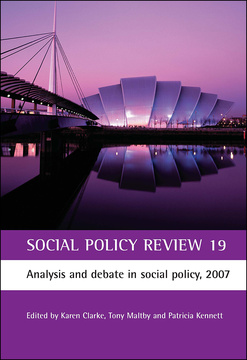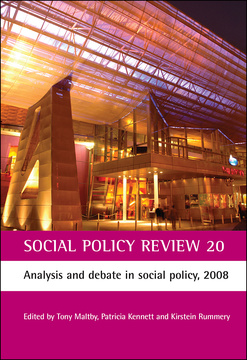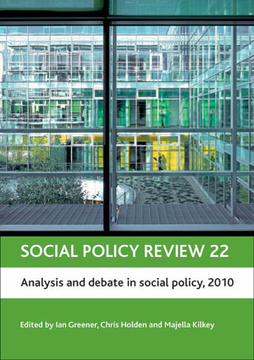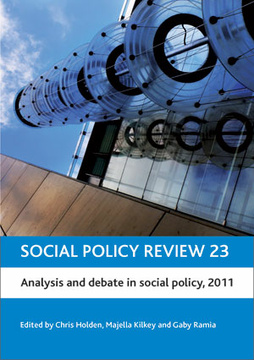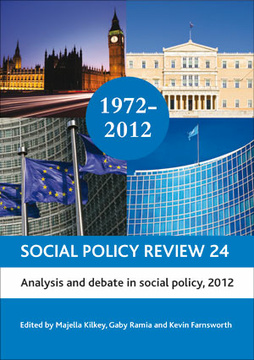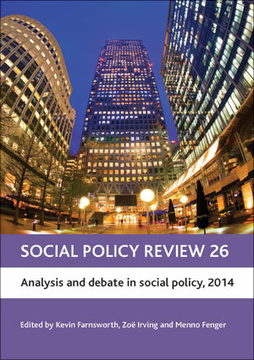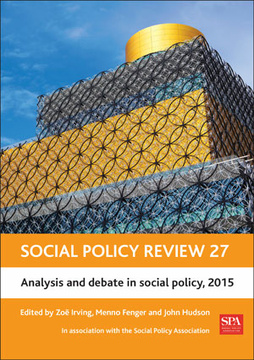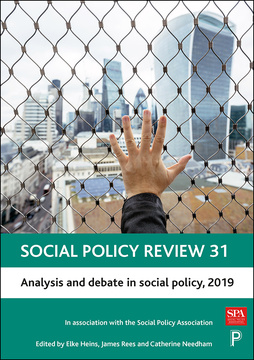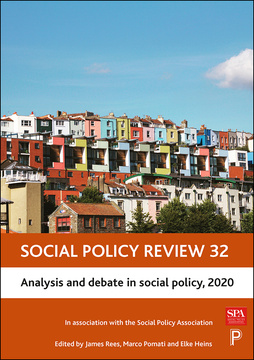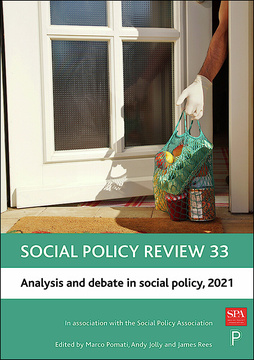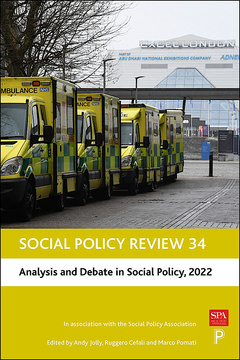Social Policy Review 28
Analysis and Debate in Social Policy, 2016
Edited by Menno Fenger, John Hudson and Catherine Needham
ISBN
978-1447331797Dimensions
216 x 138 mmImprint
Policy PressDrawing together a mix of internationally renown contributors, Social Policy Review 28 provides an up-to-date and diverse review of the best in social policy scholarship.
With specially commissioned reviews of pensions, health care, conditionality and housing this book examines important debates in the field. A themed section on personalised budgets examines the introduction and consequences of personalisation of funding from the perspectives of the UK, Australia and Norway and considers the impact of such funding on vulnerable groups such as the elderly and the homeless.
Published in association with the SPA this comprehensive discussion and analysis of the current state of social policy will be of keen interest to academics and students.
"Social Policy Review is essential reading for up-to-date analysis of the key social policy issues of the day, by authors who know their subjects inside-out." Jane Millar, University of Bath
"This latest edition of SPR provides expert commentaries on a wide range of social policy issues that, taken together, have much to say about the current state of welfare in the UK and beyond." Nick Ellison, University of York
Menno Fenger is professor of Public Administration at Erasmus University Rotterdam. He is currently is the project manager of INSPIRES, an EU-FP7 funded research programme and his research focuses on processes of long-term policy change.
John Hudson is Senior Lecturer in Social Policy in the Department of Social Policy & Social Work at the University of York. His main interests are in the areas of comparative social policy, political economy of welfare and the policy making process.
Catherine Needham is Reader in Public Policy and Public Management at the Health Services Management Centre, University of Birmingham. She has written extensively on personalisation and coproduction, and her most recent book is Debates in Personalisation, edited with Jon Glasby (Policy Press, 2014)
Part One: Continuities and change in UK social policy;
Behaviour, Choice, and British Pension Policy ~ Gordon L Clark;
Coalition Health Policy: A Game of Two Halves or the Final Whistle for the NHS? ~ Martin Powell;
Citizenship, conduct and conditionality: sanction and support in the 21st century UK welfare state ~ Peter Dwyer;
Housing policy in the austerity age and beyond ~ Mark Stephens and Adam Stephenson;
Part Two: Contributions from the Social Policy Association Conference 2015;
‘Progressive’ Neo-Liberal Conservatism and the Welfare State: Incremental Reform or Long-Term Destruction? ~ Robert M. Page;
‘There are quite a lot of people faking [it], the government has got to do something really’: exploring out-of-work benefit claimants’ attitudes towards welfare reform and conditionality ~ Ruth Patrick;
The Troubled Families Programme: in, for and against the state? ~ Stephen Crossley;
What counts as ‘counter-conduct’? A governmental analysis of resistance in the face of compulsory community care ~ Hannah Jobling;
Part Three: Individualised budgets in social policy;
Social insurance for individualised disability support – implementing the Australian National Disability Insurance Scheme (NDIS) ~ Christiane Purcal, Karen R Fisher and Ariella Meltzer;
Right time, right place? The experiences of rough sleepers and practitioners in the receipt and delivery of personalised budgets ~ Philip Brown;
Personal health budgets: Implementation and outcomes ~ Karen Jones, Julien Forder, James Caiels, Elizabeth Welch and Karen Windle;
Personalised care funding in Norway - a case of gradual co-production ~ Karen Christensen;
Individualised funding for older people and the ethic of care ~ Philippa Locke and Karen West.







